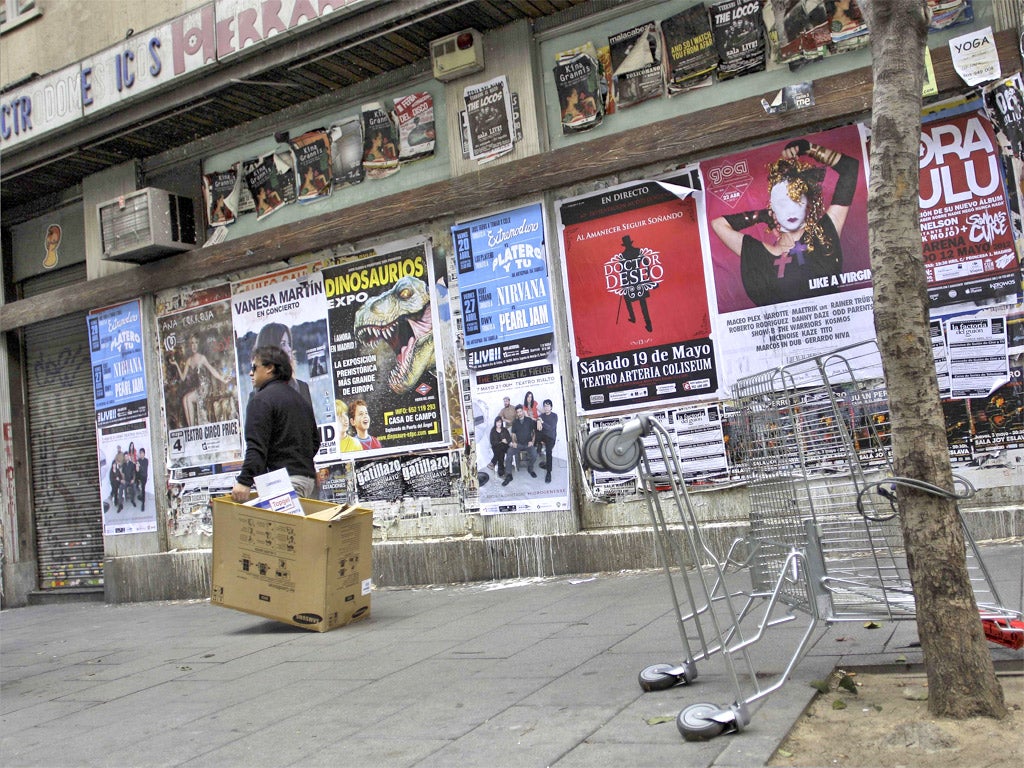Your support helps us to tell the story
From reproductive rights to climate change to Big Tech, The Independent is on the ground when the story is developing. Whether it's investigating the financials of Elon Musk's pro-Trump PAC or producing our latest documentary, 'The A Word', which shines a light on the American women fighting for reproductive rights, we know how important it is to parse out the facts from the messaging.
At such a critical moment in US history, we need reporters on the ground. Your donation allows us to keep sending journalists to speak to both sides of the story.
The Independent is trusted by Americans across the entire political spectrum. And unlike many other quality news outlets, we choose not to lock Americans out of our reporting and analysis with paywalls. We believe quality journalism should be available to everyone, paid for by those who can afford it.
Your support makes all the difference.When it rains in Spain these days, it truly pours misery. Argentina announced on Monday that it is planning to nationalise an oil company, YPF, in which a Spanish firm, Repsol, has a majority stake. Coming at a time when the government in Madrid has just rammed through the most severe budget since the death of General Franco, this must feel like an economic insult for Spain on top of already intolerable injury.
The Spanish government has promised a "clear" response to the threat to Repsol's financial interests in Argentina and the country's Prime Minister, Mariano Rajoy, is due to travel to South America to gather support from friendly governments such as Mexico and Colombia. But the truth is that Spain is in no real position to win battles abroad.
Spanish unemployment levels are now comparable to those seen in America in the depths of the Great Depression. But Spain's borrowing costs have jumped in recent weeks, raising the prospect of bankruptcy. The yield – or interest rate – on 10-year Spanish debt rose above 6 per cent this week as doubts intensified about the ability of the government to avoid having to seek a bailout from its EU partners.
There will be an important new test of market sentiment tomorrow, when Madrid attempts to raise €2.5bn in a medium-term debt auction. If investors refuse to lend to the Spanish government, or will only do so at punitively high rates, the panic will ratchet up further. The government took the opportunity of the period of calm in capital markets earlier this year to issue half of the debt it needs to finance its spending this year. But Madrid still needs a further €86bn to see it through to the end of 2012. If medium-term Spanish interest rates rise about 7 per cent, analysts predict Madrid will be unable to avoid following Greece, Ireland and Portugal, and collapsing into the arms of the fraying EU safety net.

Join our commenting forum
Join thought-provoking conversations, follow other Independent readers and see their replies
Comments